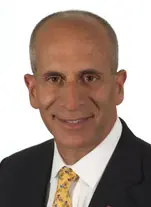by David Hirsch
Part of the How to Be a Better Dad series
It was late 1996. I was working full-time and wrapping up a three-year commitment with a respected fellowship, and we were celebrating the birth of our fifth child.
On the outside, it appeared I had it all together: great wife, growing family, rising star in a demanding but highly compensated job, and part of a prestigious leadership development program.
But on the inside, I was beginning to doubt my priorities.
I questioned where all the outward adulation was leading. The doubts soon blossomed into fears: fear of not being close to my children, and allowing them to grow up without having a good relationship with me, their father; fear of finding myself in the same trap I had experienced with my dad and witnessed between my dad and his dad, my paternal grandfather.
I realized I needed to make being a husband and father a bigger priority, and in my search to do so, I was introduced to the National Center for Fathering. I was shocked to learn that an estimated 24 million children in the U.S. will experience father absence. Maybe you’ve seen the stats: Children from father-absent homes are four times more likely to grow up in poverty and nine times more likely to drop out of high school. And we know there are millions more children whose fathers are physically present, but emotionally distant, and we can only guess at the far-reaching consequences of that.
Driven by my new-found passion for fatherhood, I began to look for ways to awaken and encourage other dads, which led to the creation of the Illinois Fatherhood Initiative (IFI). One of our biggest annual projects is an annual statewide essay contest where we have collected more than 425,000 essays from children, ages kindergarten through 12th-grade, about what their dads mean to them.
Through these experiences with my own family and the thousands of essays from other children that I’ve read, it’s so clear to me that our number-one job as dads is to be present.
Kids want our time and attention and involvement—our presence.
Be intentional about this, dads, in these four areas:
Financially
Our society has an expectation that we’ll meet our financial obligations, and rightly so. For those not living with their children, it means paying child support, avoiding wage garnishment, and so on. It also means teaching our children about the importance of money, finances and investing in age-appropriate ways. That would include having an allowance as well as learning the difference between wants and needs.
Physically
Many dads work long hours and often outside the home, which means we need to be more intentional about blocking out time around our children’s schedules so we can be physically present. Those who are most effective at this have a “family first” way of thinking about scheduling and time management. Dads who do not live in the same house need to be even more intentional about being physically present when and where they can.
Emotionally
Speaking from personal experience, I have to work hard at being in touch with my emotions and those of others. Professionally, I need to avoid emotions like fear and greed. While an asset at work, it’s a liability in my personal life. Simple questions we can all utilize are, “Why do you feel that way?” and, “How does that make you feel?”
Spiritually
Let’s help our children understand that there’s something bigger, actually much bigger, than themselves. Who is the spiritual leader in your family? Attending church or synagogue for an hour a week—and getting involved in other ways—demonstrates by your actions, not your words, the importance of spirituality. Reading and discussing Scripture as well as praying with and for your children are additional ways to exercise your spiritual muscles.
Dads, no matter what your situation or your challenges, do all you can to be truly present in your kids’ lives. Depend on other dads and learn from one another. Be intentional about winning with your kids.
More from David: A self-assessment for dads in these 4 areas.
David Hirsch is the father of five adult children, a financial advisor with UBS Financial Services, and author of two books: A Father’s Journey to Break the Cycle of Father Absence and Autism Stories: From the SFN Dad-to-Dad Podcasts. He is also founder of the 21st Century Dads Foundation, which created the Special Fathers Network (SFN), a dad-to-dad mentoring program for fathers raising children with special needs, and he hosts the weekly SFN Dad-To-Dad Podcast. David also gave a TEDx Talk entitled, “Why We Need to Break the Cycle of Father Absence.” He and his wife Peggy have been married for 38 years and live in the Chicago area.
Action Points & Discussion/Reflection Questions
- Do the outward appearances of your family reflect what’s really happening inside? If you’re “pretending” in any way or putting off important discussions or changes, deal with those soon … today. Don’t let negative habits or patterns keep your fathering and your family from being all they can be.
- Assess the closeness of your relationship with your kids. Even dare to ask each of them, “Do we have a solid, close relationship?” Ask for their ideas about how to make it better.
- What has been the biggest source of encouragement or practical helps for your fathering journey? Share that source with another dad you know.
- Are finances a help or a hindrance to your fathering? Or neither? Are job responsibilities pulling you away from your family? Get someone else’s view of that—and some ideas for positive changes you could make.
- Many dads talk about being physically present and involved in their kids’ lives, and some actually are present. Which are you?
- Make a list of things you’re intentional about. Are there ways you approach your work or other areas of life that would help you be a more engaged dad?



